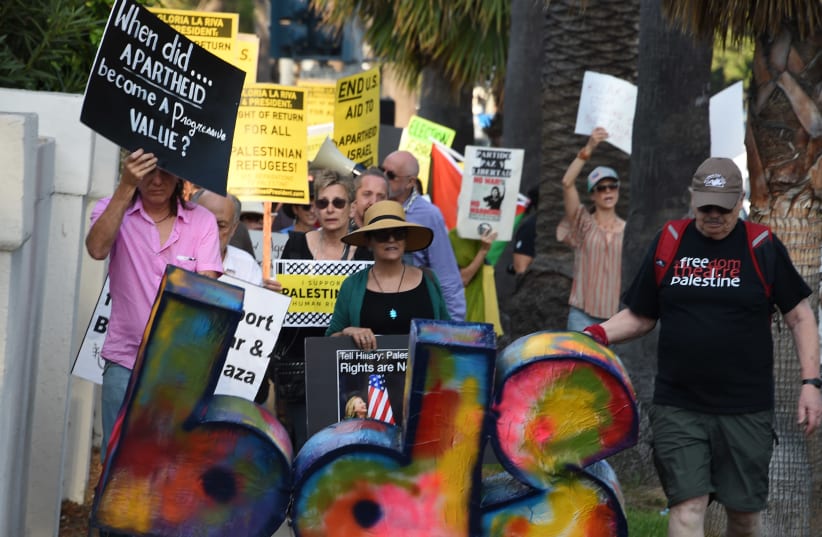Despite widespread calls for Daraldik to step down, including a petition launched by Alums for Campus Fairness (ACF) that garnered more than 750 signatures, FSU’s Student Senate voted to keep him as president.
Even though COVID-19 has shut down many universities, campus antisemitic rhetoric is stronger than we have seen when the facilities were open. This blatant bigotry against Jews has relentlessly risen on campuses where students haven’t been physically present for months. Experts and researchers have seen a distinct uptick in antisemitism – both online and off – during the current pandemic.
Our communities can effectively combat this hatred by building community, embracing dialogue, and connecting with allies. During the past few months, ACF, where I serve as executive director, has worked to accomplish this.
ACF has been effective in mobilizing against this hate for two reasons. Firstly, we had a built-in structural advantage because our lay leaders and members are located across the country. Our community is connected online through our unique portal and social media channels.
Second, ACF targets our approach to end bigotry and antisemitism on campus by promoting honest and respectful discourse at universities. Our work to galvanize a unified alumni voice has always been centered on building a positive and productive community of alumni.
That approach is key.
The focus on dialogue and community building is central to stopping hate. Any student or faculty member can tell you that the mood on campuses is shifting. Zionist advocates are only effective in changing hearts and minds when they can build inclusive coalitions with allies.
As a community, we are connecting advocates with information from organizations like Zioness on how to stop antisemitism from derailing the much-needed fight for racial justice. ACF is leading the way in working to strengthen our community.
MUCH OF this has been accomplished by expanding our social media presence, advocating against new antisemitic activities like “Zoom-bombing,” and by hosting more than a dozen educational webinars on topics ranging from strategic communications to the legal battle against campus antisemitism.
The massive uptick in antisemitism must be met with an equally massive growth in Jewish activism. If we do not rise to meet this challenge, Jewish and Zionist students and faculty across the country will face unprecedented discrimination. Right now, we must be more organized than ever before: FSU isn’t the only campus trafficking in hate since the pandemic began.
George Washington University hired an active supporter of the Boycott, Divestment and Sanctions (BDS) movement as its foreign policy school’s interim dean. Cornell University students slandered Israel by evoking a hateful canard that blamed Jews for the Black Death, a rumor that resulted in countless massacres in the 1300s.
A major academic association gave a prestigious award to a deeply bigoted San Francisco State University professor who engaged in violent hate speech, excluding Jews from campus life. Students for Justice in Palestine is targeting Zionist student leaders at the University of Southern California with bigoted propaganda that lies about Jewish indigeneity to Israel and downplays the ethnic cleansing of Jews from Arab countries.
The current pandemic has accelerated an already existing trend: Bigots are attacking pro-Israel students in digital spaces more and more often, shifting their focus from IRL (in real life) to URL (online).
This trend is deeply concerning, but we know that antisemitism is nothing new, especially during times of great tension. A global pandemic with an economic downturn, alongside a massive effort to comprehensively right long-existing wrongs against the black community in America, is certainly a time of great tension. We must be vigilant to keep bigots from scapegoating or persecuting members of black, Jewish and other minority communities.
This hatred is not new, but our approach to ending it must be. ACF has invested in the future of Jewish and Zionist students by building strong, agile online communities to combat hatred. Now it’s time for the entire Jewish community to mobilize in the digital space.
The writer is the executive director of Alums for Campus Fairness, America’s unified alumni voice on issues of antisemitism and bigotry on campus. He currently lives in Boca Raton, Florida.
